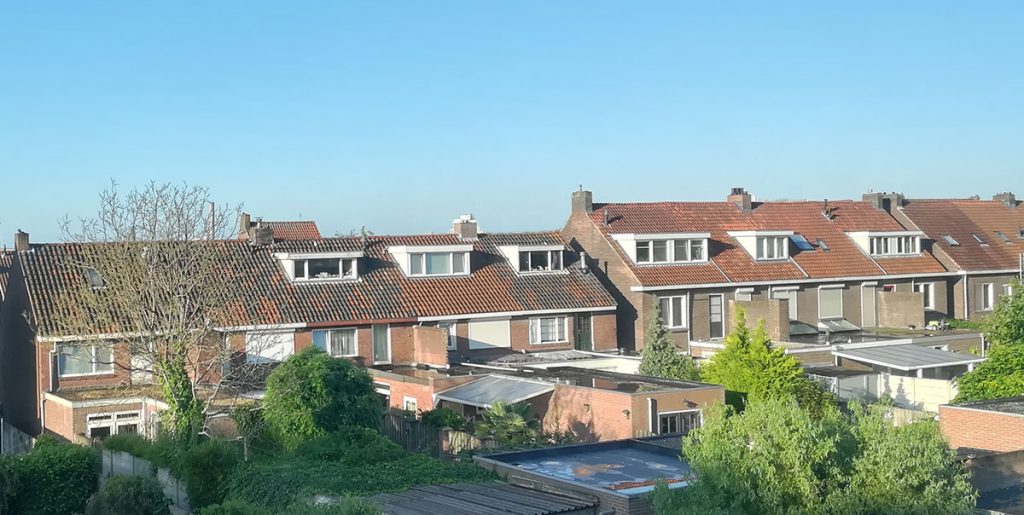What Should You Check When Viewing A House? 9 Best Tips and free checklist
Buying a house in the Netherlands in the recent years is very challenging. There is a large request compared to the offer, the prices are steadily rising and the process is draining.
Most of the times you are required to make a blind offer within a very short time if you want to have a remote chance of getting the house. And the viewing is sometimes scheduled on private appointments, but more often is organized in open days. This means that you end up walking around the house together with so many “competitors” and little chance of approaching directly the selling agent. In these conditions it is even more important to go there very well prepared, so in practice, what are the things you should check when viewing a house?
How to use this list. This list does not mean to be exclusive: you may still decide to go for that house although a bullet in the list is not checked. The point is just to be aware of the strengths and weaknesses of each house you are viewing, and base your offer on that. The list is also not complete: you may want to add something that is very important to you and should be checked on the spot. For all what can be checked beforehand, my advice is to get prepared at home!

- Expected transfer date
The seller has conditions, but so you do. Be sure to check on the bidding form that the transfer date they would like to agree upon matches your planning. My advice would be to ask the selling agent whether that date is negotiable.
You will most likely be asked to provide your desired date in the final contract in the biding form, and proposing a very different planning from what expected, might prevent you from getting the house.
If you have no constraints, my suggestion is therefore to say that you are flexible on that. - Area property (erf) that’s about the property of the ground where your (possible future) house lies. In very rare cases that’s not part of the house, and it may come with an appealing price.
Be careful that by not being the owner of the area, you may have some unpleasant surprises in the future! - Cracks on walls some cracks denote strucural problems and others are more “cosmetic”. It is therefore an important aspect to check when viewing a house. In case you see alarming cracks, it may be convenient to have this evaluated by a professional – a technical check (bouwkundige keuring). You can officially have that as part of the buying process (as explained in this post about buying a house).
- Roof: when has it last been renewed/checked? What is its condition and life expectation? Also for this aspect it may be convenient to have it evaluated by a professional (see point 4).
- Boiler it can be property/rented, and in case is property, it has a certain life expectation (see here). We stepped into a rental contract when we bought our house (it couldn’t be stopped without extra costs at the time of buying), and up until now we have been with them. One of the reasons for not buying one ourselves is that the Netherlands are moving towards a gas-free future, and making the investment now seems a bit risky to us. Furthermore, in the renting we get maintenance and support in case of hiccups. For the costs you can relate to this post.
- Frames
Window frames and doors may be another big investment. Therefore it’s good practice to check the conditionwhen viewing a house, or consider you may need to spend some additional money in there. I remember during an open house there was an estate agent checking the condition of all frames with the back of a pen. - Windows
Together with the above, check the condition and the age of windows. Having double glass windows already installed makes a difference in the initial investment (if you want to change them), or in the monthly costs (if you plan to keep what originally in there). - Flush the toilet and turn the tap. In case there is a very large problem, it will become quickly apparent.
- Presence of asbestos especially in older houses (and in the roofs of bike sheds) it is quite common that asbestos is still present. Since it is proven to be damaging, that’s good practice to ask. I believe that the seller needs to be honest about that, but is not obliged to remove it.
Furthermore, for us it was very important to check the breath of the rooms (that spaces were not suffocating) and luminosity. These things are also partially visible in photos, yet they can be misleading.
Extra tip: if you are viewing the house without estate agent for buying (inkoop makelaars), and it is open house, you may want to overhear what other people are weighting in their evaluation, especially if some estate agents (makelaars) are involved!
Claim your free checklist with what to check when viewing a house!
Just fill in your (nick)name and your email address. It will land in your mailbox shortly after! In case you do not see it in your inbox, please check your spam folder and contact me if you can not find it.
Related Posts

How to exchange your foreigner driving license to a Dutch one? (EU/EFTA)

5 tips to save money at AH

Bike rules and fines in the Netherlands

HOWTO. How can I donate blood in the Netherlands?

What Is An OV-chipkaart? Best choice between Anonymous And Personal

Buying a house in NL. How much does it cost?

2020 – Public and school holidays in the Netherlands (with free calendar)
